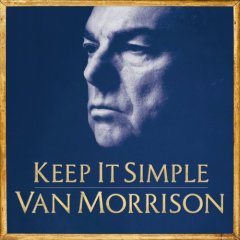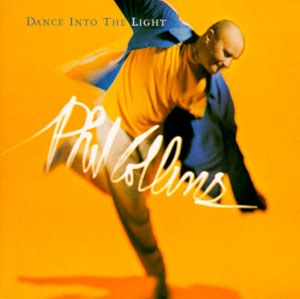Wrong. Bob does a lot of things, but grand statements aren’t any of them. Even with the gravitas in the teasers that previewed it, Rough And Rowdy Ways is simply a collection of songs he wrote sometime in the preceding eight or so years. Granted, those eight years were filled with six hefty installments in his Bootleg Series, two box sets covering two historic tours, and three albums dedicated to old standards that happened to be covered first by Frank Sinatra.
Even the title is contrary. Yes, his voice is rough, but nothing on the album could really be considered rowdy. The packaging is as minimalist as any of his last handful of albums—the barest musician credits, antique photos repurposed, including a prominent photo of John F. Kennedy on the back captioned by exactly one song title; more about that in a bit. Bob’s name only appears on the spine and the discs themselves.
Most of the album is quiet, the words delivered in a near monotone, much like side two of Oh Mercy. “I Contain Multitudes” opens the program with his revised style of beat poetry infused with pop culture references, including a juxtaposition of Anne Frank, Indiana Jones, “and them British bad boys, the Rolling Stones.” You can almost hear him wink. “False Prophet” turns it up with a swaggering blues, full of the boasting that’s featured in his similar songs from this century. In “My Own Version Of You”, he takes the role of a Dr. Frankenstein, describing his method of creation over a spooky country-tinged backing.
In the aftermath of his Sinatra trilogy (for lack of a better term), “I’ve Made Up My Mind To Give Myself To You” sounds like another attempt at writing a standard along those lines. It’s even got crooning backing vocals for a very nice touch. The sense of calm doesn’t last, as he has to repel a demon in “Black Rider”. This enemy is either literal or symbolic, yet one he feels compelled to warn “the size of your cock will get you nowhere.” “Goodbye Jimmy Reed” is another namecheck of a blues legend over a fitting groove.
“Mother Of Muses” is an exquisite prayer, along the lines of “Stay With Me”, this time evoking the name of Calliope, the muse of epic poetry. It would be a wonderful way to end the album, but there’s more to go. “Crossing The Rubicon” is a dirty blues and something of a stumble, in need of editing. The Bob of yesteryear would have settled for ending each verse with the title, but here he overuses the image, from the first line and throughout the song. “Key West (Philosopher Pirate)” is lovely but dizzyingly inscrutable, a travelogue that mentions dead presidents, and includes the questionable biographical that he married a prostitute, at the age of twelve no less. (Naturally, they’re “still friends.”)
The important track here would be “Murder Most Foul”, the first preview for the album, included on a disc all its own. Just as “Sad-Eyed Lady Of The Lowlands” was given a place of honor taking up an album side, this mediation on the Kennedy assassination will be studied as deeply as any of his other epics. Over a nearly ambient backing, it begins with recounting of the events, weaving through the decades since and back, name-checking the Beatles and the Who, Woodstock and Altamont, Freddy Krueger and Scarlett O’Hara, “What’s New Pussycat” and “What’d I Say”. Over the final six minutes of nearly seventeen, he requests a litany of songs for Wolfman Jack to play, from classical and rock to jazz and blues, ending with a request for “Murder Most Foul” itself. A possible antecedent would be “Last Thoughts On Woody Guthrie”, which he recited once in public, approximately seven months before the events in Dallas. (See also his far-from-factual recount of the Titanic disaster in “Tempest”; meanwhile “Hurricane” also includes “wait a minute, boys” as a key statement.)
We seem to be in the minority among pundits, most of whom have declared Rough And Rowdy Ways to be a masterpiece. This far into his career, and at his advancing age, any album might be considered a final statement, and time will tell what he may yet have in store for us. Time will also tell how well this album will age; our expectations on that end have influenced our rating. And maybe one day we’ll find out what exactly Fiona Apple contributed to the album. (Supposedly piano on “Murder Most Foul”, but it’s not exactly idiosyncratic.)
Bob Dylan Rough And Rowdy Ways (2020)—3








